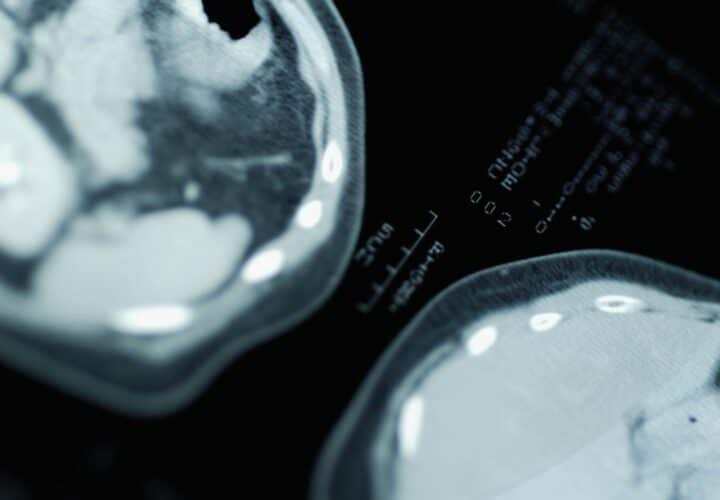Researchers are getting closer to developing a simple blood test to diagnose Alzheimer’s disease.
A study published in the journal JAMA Neurology found that a blood-based biomarker test called Elecsys correctly identified people with beta-amyloid plaques with 80 percent accuracy. Beta-amyloid plaques are proteins that gunk up the brain and cause neuron death, and are a hallmark of Alzheimer’s disease.
Elecsys Blood Test Accurately Predicts Beta-Amyloid Plaques in Brain
For this study, the researchers investigated whether the Elecsys blood test, developed by Roche Diagnostics and researchers at Lund University, Sweden, could accurately predict whether beta-amyloid has started to accumulate in people’s brains, even before symptoms.
Blood samples were collected from 842 people in Sweden and 237 people in Germany who were either Alzheimer’s patients with dementia, healthy elderly people, or people with mild cognitive impairment (MCI), a precursor to Alzheimer’s disease.
The test was correct 80 percent of the time, and became 5 percent more accurate when researchers factored in the presence of the ApoE4 gene – the most common genetic risk factor for Alzheimer’s.
Related: How Soon Will I Be Able to Get an Alzheimer’s Blood Test?
Alzheimer’s Blood Tests Like Elecsys Could Cut Costs and Pave Way for Early Diagnosis
The accumulation of beta-amyloid plaques in the brain occur long before the development of Alzheimer’s disease symptoms. Currently, the only ways to measure beta-amyloid plaques is via positron emission tomography (PET) scans and spinal taps – costly and invasive procedures that aren’t covered by insurance.
Related: This Test Can Detect Alzheimer’s But It’s Not Covered by Insurance
The accumulation of plaque in the brain is also used to determine whether candidates are eligible for trials of drugs targeting beta amyloid. Using these types of blood tests in screening could reduce PET costs by 30% to 50%, said the team, led by Dr. Sebastian Palmqvist, PhD, a neurologist at Skåne University Hospital in Malmö, Sweden. This would help reduce the large financial burden of clinical trials.
Elecsys is a fully automated immunoassay. Immunoassays test for proteins or antibodies in the blood. Other common immunoassays include tests for rheumatoid arthritis and hepatitis B.
Elecsys is just one blood test being developed to diagnose Alzheimer’s disease in a healthcare setting. A blood test is more cost-effective and easier to use in patients.
This study also conducted a cost-benefit analysis of the test and found that a blood test like Elecsys would lower the cost of screening 1,000 from $9.2 million to $6 million, when compared to PET scans.
An editorial accompanying the study called the Elecsys results “excellent,” however questioned whether the blood test could be scaled sufficiently in a real-world setting. The downside to the Elecsys test, wrote Sid O’Bryant, a University of North Texas professor who has worked on other blood tests for Alzheimer’s, is that the blood collection process differs from standard clinical lab practice. There is value, he says, in having a process that adheres to standard practice, given how often these tests would be performed.





How can I help or support your efforts for early diagnosis of Alzheimer’s ?